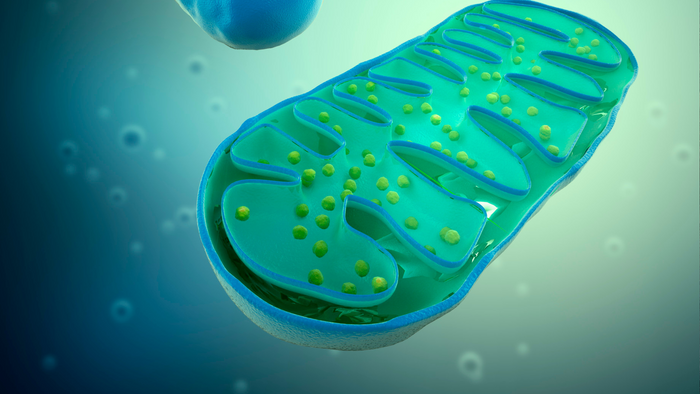Top 5 Tips for Mitochondrial Repair and Restoration in 2025

As we move into 2025, the importance of optimizing mitochondrial health has never been clearer. These tiny powerhouses of the cell are responsible for producing the energy our bodies need to thrive. When your mitochondria are healthy, you feel energized, focused, and resilient. But when they become damaged or inefficient, fatigue, brain fog, and a host of other healt ch issues can arise.
Fortunately, repairing and restoring mitochondrial function is within your reach. With the latest insights and strategies, you can support your cellular energy production and unlock your full vitality. Here are the top 5 tips for mitochondrial repair and restoration in 2025.
1. Prioritize a Mitochondria-Friendly Diet
The foundation of mitochondrial health starts with what you put on your plate. Certain nutrients and food groups are essential for repairing and restoring mitochondrial function.
Key Nutritional Strategies:
-
Increase Antioxidant Intake: Foods rich in antioxidants, like blueberries, spinach, and dark chocolate, help neutralize free radicals that can damage mitochondria.
-
Incorporate Healthy Fats: Omega-3 fatty acids from sources like salmon and eggs are essential for building and maintaining mitochondrial membranes.
-
Focus on High-Quality Protein: Protein sources, such as grass-fed beef, pasture-raised chicken and eggs provide the amino acids needed for mitochondrial repair.
-
Add Sulfur-Rich Foods: Broccoli, garlic, and onions contain compounds that support detoxification and mitochondrial function.
-
Limit Processed Foods and Sugars: These can contribute to inflammation and oxidative stress, impairing mitochondrial efficiency.
For 2025, consider integrating superfoods like spirulina, chlorella, and MCT oil into your diet to give your mitochondria an extra boost.
2. Embrace Mitochondrial-Boosting Exercise
Physical activity is one of the most effective ways to stimulate mitochondrial biogenesis, the process by which your body creates new mitochondria.
Types of Exercise to Try:
-
Aerobic Exercise: Activities like jogging, cycling, and swimming improve oxygen utilization and enhance mitochondrial efficiency.
-
High-Intensity Interval Training (HIIT): Short bursts of intense activity followed by rest have been shown to boost mitochondrial growth.
-
Strength Training: Building muscle increases metabolic demand, encouraging mitochondrial adaptation and repair.
In 2025, wearable fitness technology continues to evolve, offering tools to optimize your workouts for mitochondrial health. Use devices that track heart rate variability and recovery to ensure you’re exercising in the optimal range.
3. Optimize Sleep for Cellular Repair
Your mitochondria do some of their best work while you sleep. During deep sleep, your body focuses on repairing and regenerating cells, including those with damaged mitochondria.
Tips for Better Sleep:
-
Establish a Consistent Sleep Schedule: Going to bed and waking up at the same time daily helps regulate your circadian rhythm.
-
Create a Sleep-Conducive Environment: Keep your bedroom cool, dark, and free of electronic distractions.
-
Limit Blue Light Exposure: Avoid screens at least an hour before bedtime to support natural melatonin production.
-
Consider Sleep Supplements: Magnesium, melatonin, and L-theanine can promote relaxation and enhance sleep quality.
Emerging trends in 2025 include smart sleep devices that provide detailed insights into your sleep cycles, helping you identify patterns and make adjustments for optimal rest.
4. Reduce Toxin Exposure and Support Detoxification
Toxins from the environment, diet, and lifestyle can overload your detox pathways and damage mitochondria. Supporting your body’s detox systems is critical for mitochondrial repair.
How to Minimize Toxins:
-
Filter Your Water: Use a high-quality water filter to remove heavy metals, chlorine, and other contaminants.
-
Choose Organic Foods: Reduce your exposure to pesticides and herbicides by opting for organic produce whenever possible.
-
Avoid Harmful Chemicals: Switch to natural cleaning and personal care products.
Detox Practices for Mitochondrial Health:
-
Hydrate with Lemon Water: Start your day with a glass of warm lemon water to support liver detoxification.
-
Incorporate Sauna Therapy: Sweating in a sauna helps eliminate toxins through your skin.
-
Try Detoxifying Supplements: Activated charcoal, glutathione, and milk thistle can support the body’s detox processes.
5. Harness the Power of Mitochondrial-Supportive Supplements
Supplementation can provide the nutrients and cofactors mitochondria need to function optimally. In 2025, advanced formulations make it easier than ever to target mitochondrial health.
Top Mitochondrial Supplements:
-
CoQ10: A vital antioxidant that supports energy production and protects mitochondria from oxidative stress.
-
NAD+ Precursors: Nicotinamide mononucleotide (NMN) and nicotinamide riboside (NR) boost NAD+ levels, which are critical for mitochondrial function.n k
-
bfhbMagnesium: Essential for ATP production, magnesium supports overall energy metabolism.
-
Alpha-Lipoic Acid: Helps regenerate other antioxidants and supports mitochondrial repair.
-
PQQ (Pyrroloquinoline Quinone): Promotes mitochondrial biogenesis and protects against oxidative damage.
-
Ozone Therapy: A growing interest in 2025, ozone supplementation may improve oxygen utilization and mitochondrial efficiency.
-
Shilajit: This ancient remedy is rich in fulvic acid and minerals that enhance mitochondrial energy production and repair.ng nn
Conclusion: Take Control of Your Mitochondrial Health
Your mitochondria are at the core of your energy and vitality. By following these top tips for mitochondrial repair and restoration, you can set yourself up for a healthier, more energized 2025. From eating a mitochondria-friendly diet to embracing targeted supplements, every step you take to support these cellular powerhouses will pay dividends in how you feel and perform.
At Soma-Energetics, we’re here to support your journey to better health. Explore our resources and tools designed to help you optimize your mitochondrial function and unlock your full potential. Let’s make 2025 your most energized year yet!


